EdTech: A technical approach to flexible and cost-effective education
It's hight time for the world to go for innovative approaches like e-learning over traditional learning methods that need physical infrastructure, long-term planning, and huge investment.
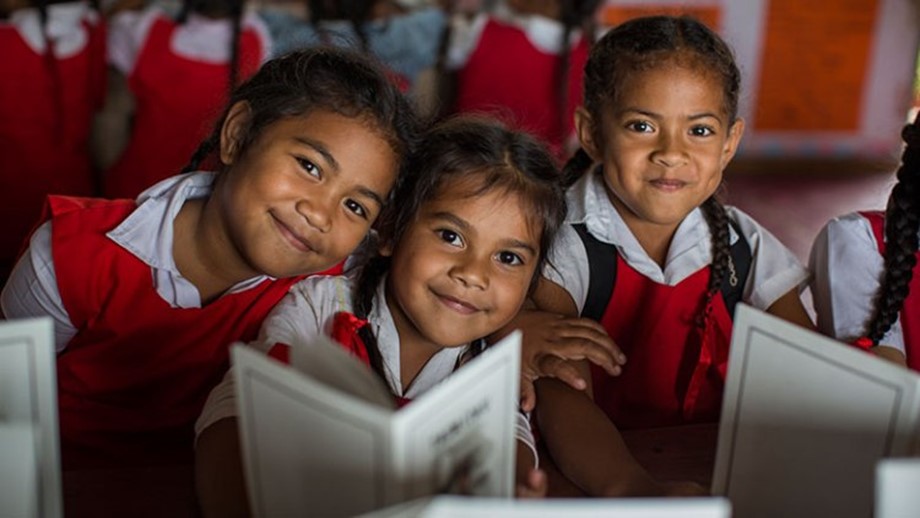
Access to quality education is a fundamental human right rather than a privilege. A number of international conventions and the United Nations have also recognized quality education as a fundamental right to ensure all-round development of an individual.
The Sustainable Development Goal 4 of the United Nations also commits to “ensure inclusive and equitable quality education and promote lifelong learning opportunities for all." But despite a number of initiatives, commitments, and recognitions, the right to education is being denied to millions around the world, particularly in low and middle-income countries. Recent statistics published by the UNESCO Institute for Statistics (UIS) reveal that there has been little or no progress in reducing out-of-school numbers in over a decade.
Sub-Saharan Africa has the highest out-of-school rates followed by South Asia and Eastern and South-Eastern Asia in the second and third spots, respectively. Furthermore, if the trend continues, one in every six children will still be out of primary and secondary school in 2030 and only six out of ten youth will complete secondary education. The statistics are more alarming for girls who continue to face the greatest barriers to completing 12 years of education. Factors like poverty, child marriage, gender disparity, child marriage are responsible for keeping girls out of school and learning.
Taking the above facts and figures into account, governments, international organizations and other stakeholders need to renew their efforts to give increased attention to Sustainable Development Goal 4 i.e. quality education for all. It's high time for the world to go for innovative approaches like e-learning over traditional learning methods that need physical infrastructure, long-term planning, and huge investment.
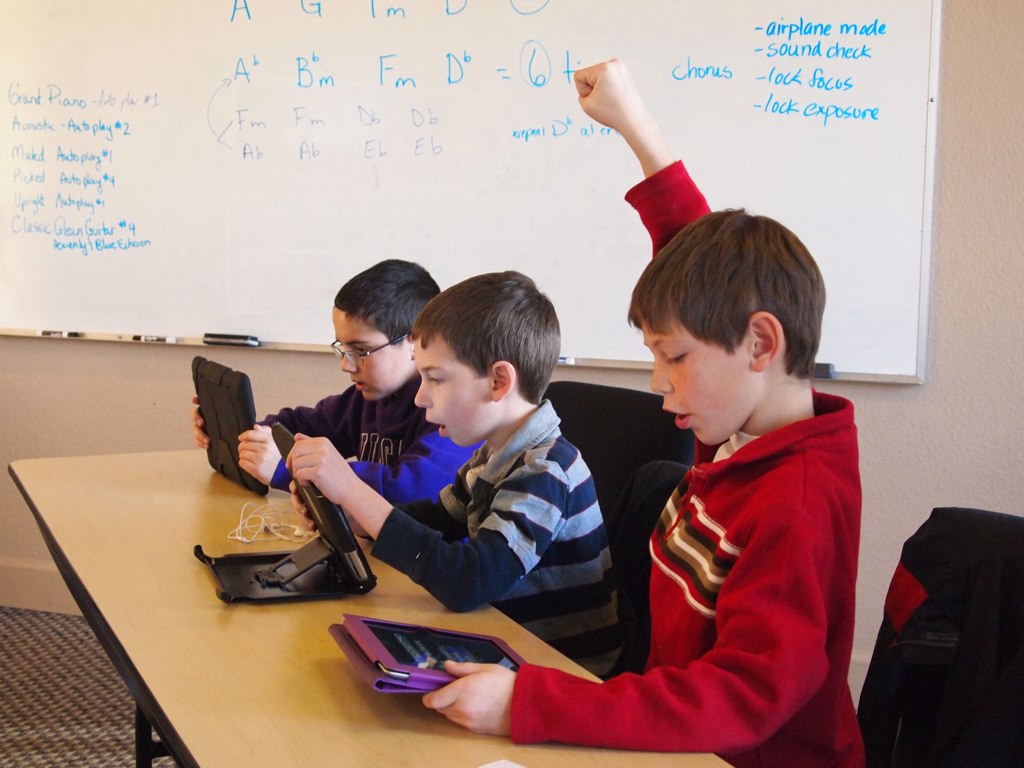 Image Credit: Flickr
Image Credit: Flickr
Digital forms of education offer tremendous possibilities, both in terms of access and quality. As the internet and smartphone penetration is constantly increasing, online learning methods are also becoming more accessible. The global education technology aka EdTech market is expected to grow to USD 40.9 billion by 2022, at a Compound Annual Growth Rate (CAGR) of 18.3 percent, led by seismic shifts in technological demands and innovation, according to a forecast by research and consulting firm Frost & Sullivan.
EdTech is not only transforming the way education is approached but also helping achieve gender parity in education. Here are a few EdTech tools or programs from around the world that are reshaping the education sector by eliminating the obstacles children face in accessing quality education.
EduTrac
Introduced by the Uganda's Ministry of Education and Sports along with UNICEF, EduTrac is a mobile phone-based real-time information management system that seeks to identify bottlenecks at school level and improve the learning environment for Ugandan children.
EduTrac, as the name suggests, tracks students' and teachers' attendance, progress in literacy and English curriculum, hygienic facilities, child abuse, violence, and other education indicators to improve planning for education and provide targeted responses.
Since its introduction, absenteeism and school drop out rates have significantly reduced. EduTrac aims to reach all primary schools in Uganda by 2020.
Worldreader
In line with its commitment to cultivate reading around the globe and ultimately contribute to eliminating poverty, reducing inequality and improving prosperity, Worldreader, a non-profit organization, provides Kindle e-readers and e-books to schools, libraries, and underserved communities in sub-Saharan Africa where printed books are either not available or are prohibitively expensive.
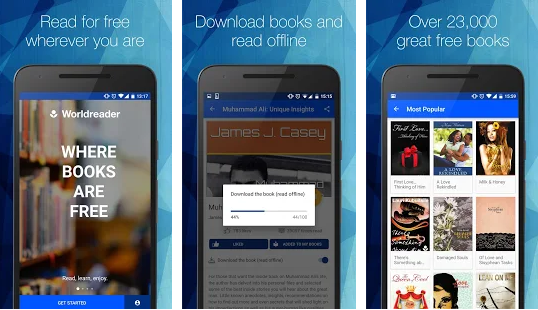
The Worldreader app developed by the organization provides learners access to an enormous digital library with thousands of free carefully curated ebooks in 40+ languages from around the world. If the reader goes out of data or can’t connect to the internet, the offline reading option guarantees an uninterrupted reading, anytime and anywhere.
The Read Out Loud feature helps readers to listen to any book in the Worldreader library by pronouncing an individual word or phrase.
Project Hello World
Hello World works with the most vulnerable and marginalized communities to build solar-powered outdoor Internet kiosks called 'Hello Hubs' to help them access the Internet and information and educational resources. The WiFi-enabled, solar-powered Hello Hubs are designed to withstand extreme outdoor weather and are energy-autonomous. One Hub provides unlimited internet access to over 1500 people. The Hubs are also equipped with large 9.7-inch iPads, enabling children to learn and play simultaneously.
Project Hello World is a fine example of how access to affordable internet and Self Organized Learning Environment (SOLE) can help marginalized and isolated communities with no or limited access to learning tools to empower themselves with education and have a voice in the global community.
ClassroomQ
The website has been designed to make the lives of students easier by giving them the opportunity to ask questions without fear. Just by tapping the assistance button, students can ask questions without embarrassment or without interrupting the class and wait for their teachers' response.
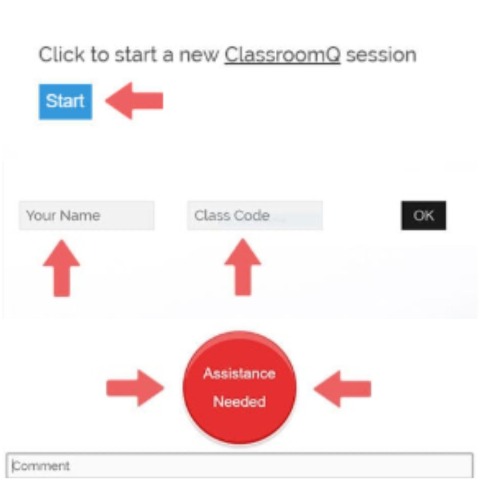
How does it work?
- After creating an account, teachers hit the start button to start a session and get a class code.
- Students join the ClassroomQ session by entering their names and their teacher’s class code.
- With the push of a button, students can ask for assistance and their name will be added to the queue.
Kolibri
Kolibri is an offline app built to deliver high-quality educational content in connectivity-scarce environments such as rural schools, refugee camps, orphanages, non-formal school systems, and prison systems.
Developed by Learning Equality, a non-profit organization committed to enabling every person to realize their right to education, the open-source platform seeks to address educational inequality caused by limited or no connectivity.
Kolibri curates educational content from different sources around the globe and makes it available completely offline, on low-cost devices. The openly licensed educational content library includes both formal educational materials such as lessons and assessments and exploratory materials, such as books, games, and simulations.
onetab
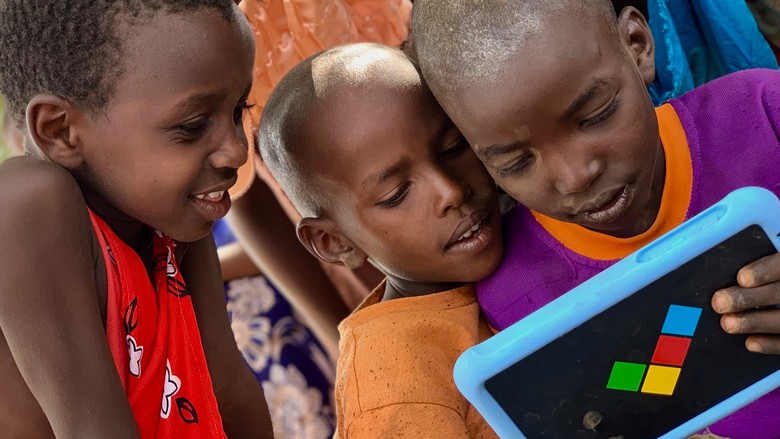 Image Credit: onetab
Image Credit: onetab
Developed by onebillion, a London-based non-profit organization, the onetab is a robust, dedicated tablet designed to deliver reading, writing, and numeracy in the child’s own language. Built for children in and out of school, particularly for children with special educational needs, refugees and girls and boys in remote areas, the dedicated learning device comes in a durable carry case and can be optionally charged via a solar charger.
SWAYAM
Initiated by the Government of India, the program focuses on achieving three key pillars of education policy i.e. access, equity, and quality. The SWAYAM program seeks to provide the best learning resources to all, particularly the underprivileged social segments, whilst simultaneously bridging the digital divide.
The program includes:
- video lecture
- best quality reading material
- self-assessment tests through tests and quizzes and
- an online discussion forum for clearing the doubts
(Disclaimer: The opinions expressed are the personal views of the author. The facts and opinions appearing in the article do not reflect the views of Devdiscourse and Devdiscourse does not claim any responsibility for the same.)
- READ MORE ON:
- onebillion
- EdTech
- Sustainable Development Goal 4
- education
- e-learning
- FIRST PUBLISHED IN:
- Devdiscourse










